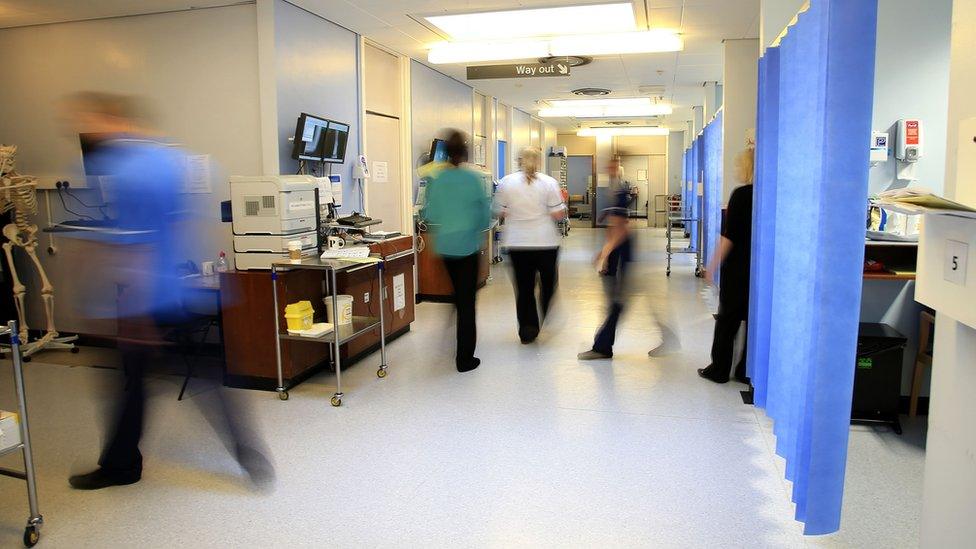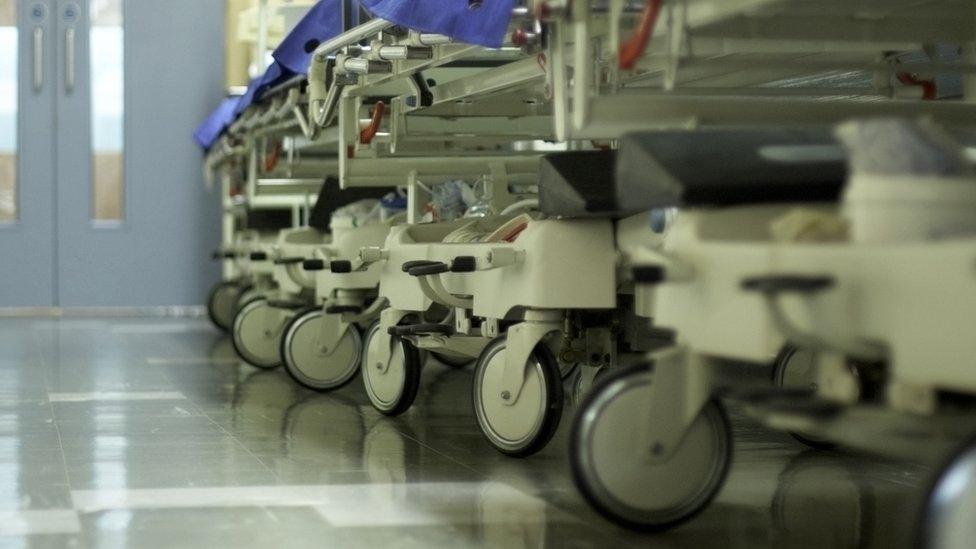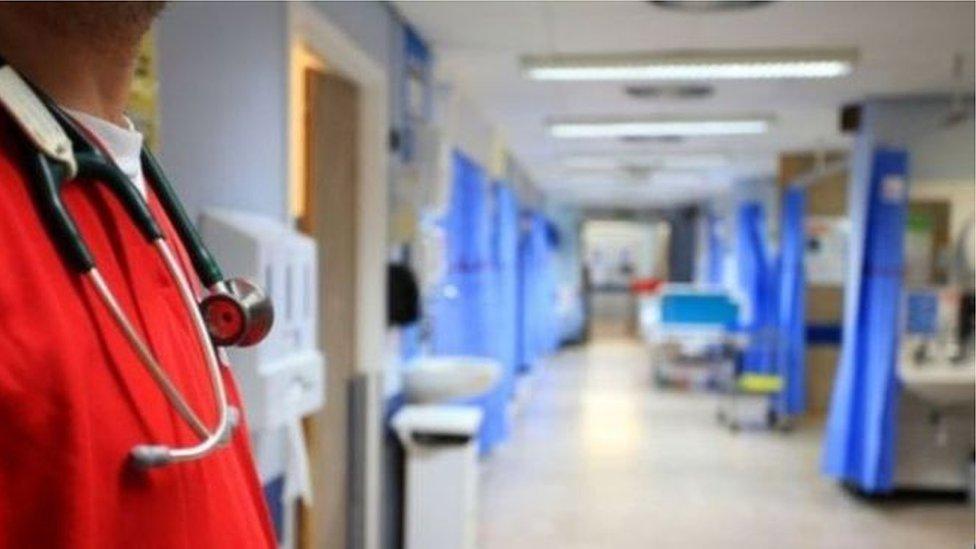Northern Ireland's nurses to be balloted on strike action
- Published

Nurses will have four weeks to vote from 9 October
Nurses in Northern Ireland are to be balloted on strike action over staffing numbers and pay disputes.
The ballot will begin on 9 October and last four weeks. It is the first time such action has been taken.
Members of the Royal College of Nursing (RCN) voted unanimously for the ballot to go ahead.
The vote means nurses will receive ballot papers asking them whether they wish to take industrial action including strike action.
Attempts to secure more staff and better pay through formal channels have to date failed, the RCN's Northern Ireland director Pat Cullen told the BBC.
"Whilst it is momentous, it is also a sad occasion to think that nurses in Northern Ireland have had to move to a ballot in order to get the best resources that they need to look after their patients."
'Services will be impacted'
Ms Cullen said it is a decision that hasn't been taken lightly.
"When you have a 13% vacancy rate in your work force and thousands of nurses not available everyday for work... that speaks volumes.
"With regard to talks with the department over pay, which have been ongoing for years, there has not been a positive outcome."

There are 2,600 unfilled nursing posts in Northern Ireland
In a UK-wide survey of 30,000 RCN nurses, 55% reported understaffing and 59% said staff health was suffering.
In Northern Ireland, nearly half of nurses reported working eight hours or more additional and unpaid work every week.
According to the RCN, the real value of nurses' pay in Northern Ireland has fallen by 15% in the past eight years.
The union argues that pay in NI continues to fall behind England, Scotland and Wales.
There are 2,600 unfilled nursing posts across the health and social care system with further vacancies in nursing homes.
The Department of Health said it was disappointed that a ballot had been announced.
"Health service staffing vacancies are an issue across these islands and industrial action will do nothing to resolve workforce challenges and can only penalise patients at a particularly difficult and uncertain time," it added.
It said staff were under pressure because the health system was "widely recognised as outdated and in urgent need for reform".
It added that it was committed to finding a way forward in the pay talks.
- Published29 July 2019

- Published10 September 2018

- Published5 September 2018
